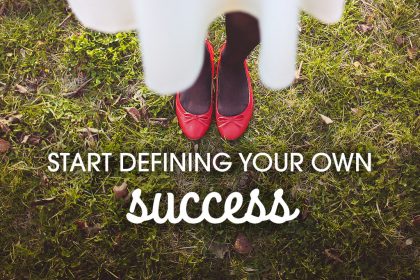Why mums feel guilty (and how to stop)
When we speak to mums – whether they’re working flexibly, talented freelancers, or running their own businesses – one word seems to crop up a lot. And that’s guilt.
Coach Roxanne Hobbs explains why we’re almost conditioned to feel guilty once we have children, and how you can banish your own guilt forever.
Why mums should stop feeling guilty
Guilt seems like an inevitable part of being a mum. There’s always a list of things that we ought to be doing or ways in which we should be doing things differently. Our time is so stretched that we inevitably use short cuts to get by, and then beat ourselves up about it.
We also come across other mums who approach things differently, or are perhaps a little less than honest in their descriptions of what goes on in their families, and suddenly that nagging and judgemental voice pops up in our heads again.
How the media can make things worse
The media doesn’t always help either. We’re bombarded with voices criticising what others do, and reminding us of all the ways we could be doing things better. A recent article in the Daily Mail even suggested that infants of depressed mothers may have abnormal brain wiring, and could be at risk of ‘contracting’ depression in the womb.
Because that’s just what depressed, pregnant women need isn’t it? Not only are they feeling pretty lousy already, but now they’re being told their babies are going to have an abnormality as a result! The blame and the guilt are aimed directly at the mother. It’s enough to make you feel depressed. Oh hang on…
How sharing your guilt can help
In my coaching work I have found that sharing experiences of guilt with other mums can be a cathartic experience. My suspicion was that it would be a comfort and reassurance to share your guilt triggers, as it makes you feel part of a club and normalises your feelings.
And I was right. I discovered that just saying the thing you feel guilty about out loud to someone, rather than just having it incessantly swirl around your own consciousness, was really helpful. The guilt trigger that had been gnawing away at you inside can suddenly sound trivial and ridiculous when said out loud. A bit of laughter and a not-taking-yourself-too-seriously perspective can work wonders, too.
How does guilt affect your life?
However, just because other mums share your guilt triggers (ridiculous or not), this is no reason to accept the situation. Guilt is an unhealthy emotion and uses up a lot of energy that could be better spent elsewhere.
What about you? How does guilt manifest itself in your life? What is the impact on you? Your partner? Your children? Your work? What is the cost of not doing anything about this feeling?
Guilt – the unhealthy alternative to remorse
In Elinor Wilde’s ‘100 Working Mums Project’, mums said that feeling guilty, stretched, torn and miserable can lead to being snappy with their children, having little energy to spend time with them or their partner and certainly no energy for themselves.
I researched further to try and understand why it is such a negative emotion. A cognitive behavioural therapy book about guilt helped my understanding enormously (see ‘Coping with Guilt’ by Windy Dryden). Feeling guilty is the emotion you experience when you blame or condemn yourself for doing something wrong, for failing to do the right thing or for harming or hurting someone.
Guilt is actually the unhealthy alternative to remorse. If you feel remorseful, you accept your whole self whilst taking full responsibility for the behaviour. (So, rather than thinking ‘I am a bad person for doing this thing’, you are able to think, ‘I am a fallible human being who in this instance did the wrong thing’.)
How to let go of your guilt
I have certainly found that many mums experience guilt in the same way that they experience stress, finding it difficult to pull the two things apart.
But how do we stop feeling like this? How do we let go of our own guilt? This is when I need to introduce you to my own personal guilt saboteur. I call her Mary. The saboteur is a concept that embodies a group of thought processes and feelings that maintains the status quo in our lives. (It’s that voice on your shoulder that is constantly sitting in judgement and telling you what you ought or should be doing.)
My own guilt saboteur, Mary, is constantly telling me that I ought to be a better mum. I ought to be more present with my boys, ought to spend less time doing ‘my’ stuff and she tells me I should be able to cope with two very young boys. I should always be happy and upbeat, and should never have to ask for help.
For me, she is personified by a lot of the mums or female carers that you see in children’s books – particularly quite traditional ones. (Mary Poppins probably does it for me – although admittedly she’s a nanny rather than the children’s mother, so gets to go off duty occasionally!)
Picture your guilt saboteur
Have a think about what your guilt saboteur is telling you. Hint: listen for the phrases should be and ought to be. As a coach, that always tells me that the saboteur is present.
Make a list of all of the judgemental remarks your guilt saboteur makes, and then start to think about what she looks like. Does she remind you of anybody you have met? A character in a film or storybook? I’ve used Little Miss characters with lots of my clients. If you’re stuck you could call her Little Miss Guilty.
Your guilt saboteur is neither good not bad. It just is. She will lose power over you when you can identify the voice for what it is, and this is the first step. Stop and notice all of the options available in the situation to you (not just the shoulds and ought to’s) and then consciously choose what it is you do really want at that time.
Choose a more positive angle
If you could put your saboteur’s voice to one side, what options are available to you? Is there a more positive angle that you would like to choose to hold regarding any situation? Is there something that you would like to do differently? As soon as you notice yourself saying should or ought to, stop yourself. That’s your guilt saboteur again! Perhaps change the should to could and see what comes up for you?
Finally, commit to doing something differently. Write down four things you are going to do differently as a result of this exercise. And then tell someone about it. You are much more likely to succeed if you share your intention. I would love to hear from you.
Roxanne Hobbs is founder of Hackney Mums – a support group for mums in Hackney. She also offers personal coaching to help you navigate the transition back to work, be a successful working mum, manage work life balance and to improve your confidence at home and in the workplace.










